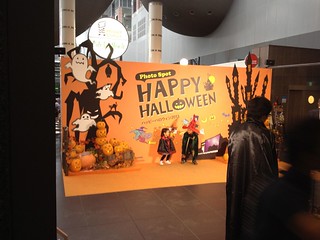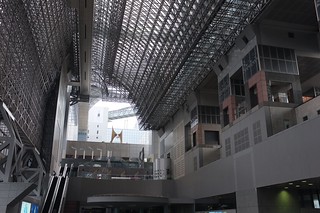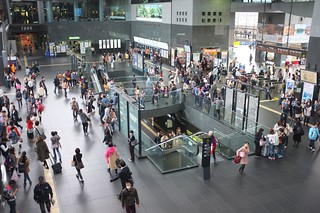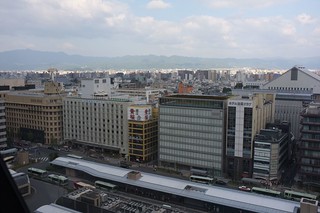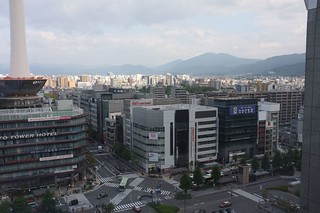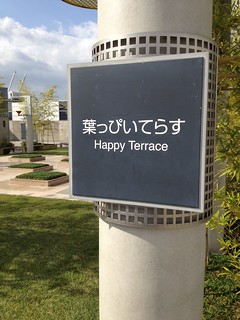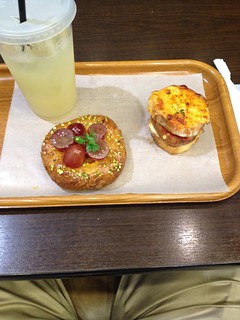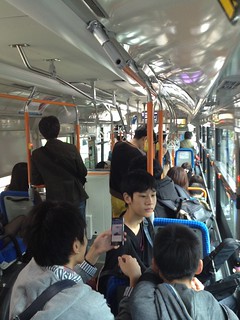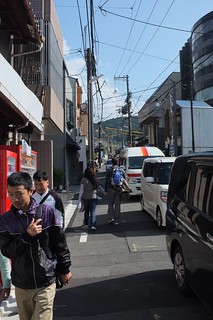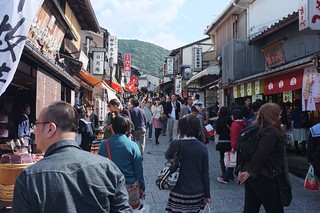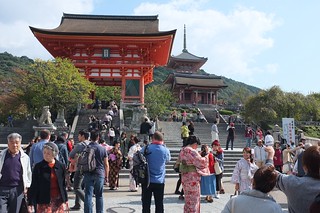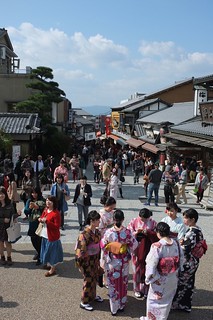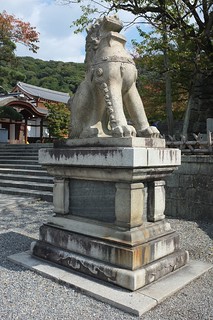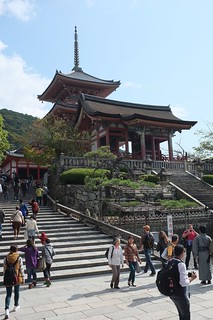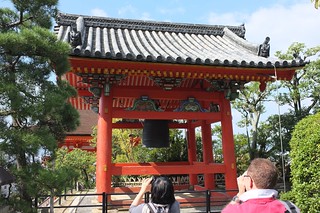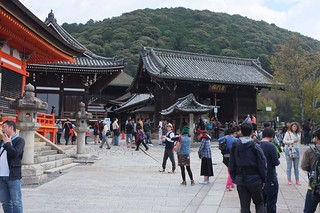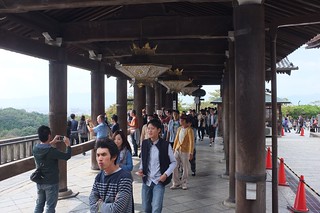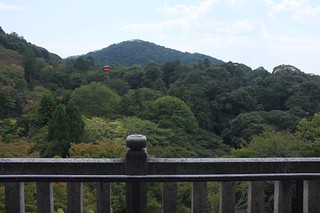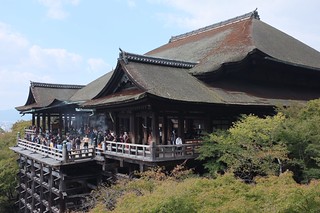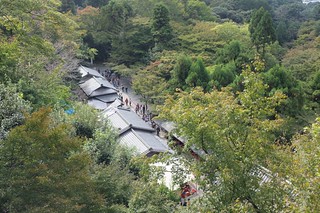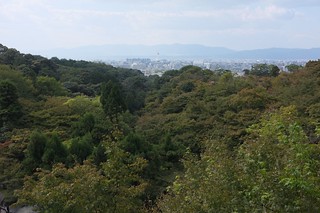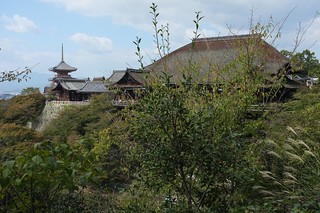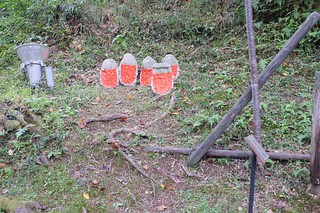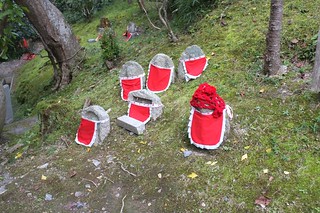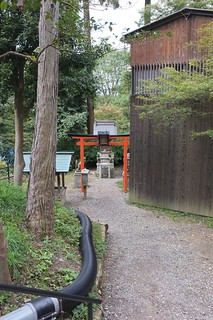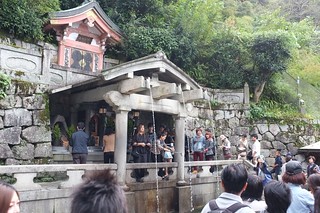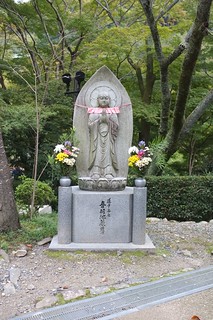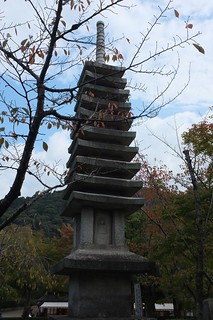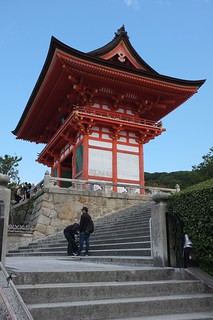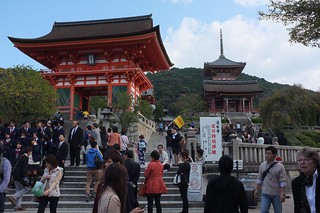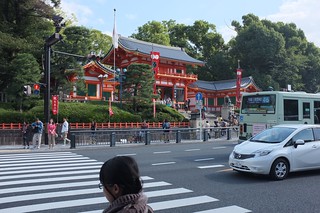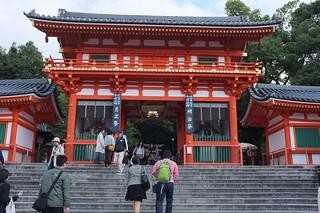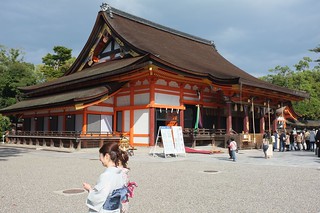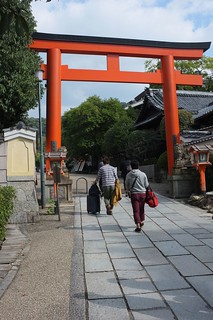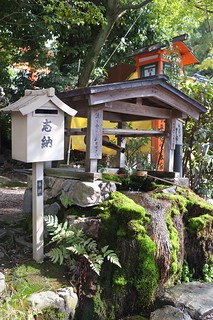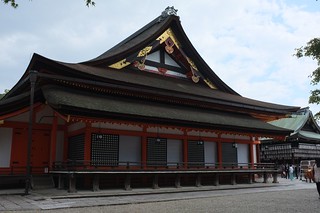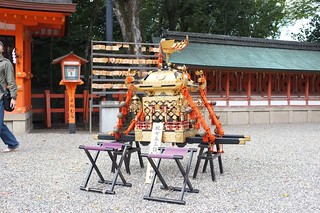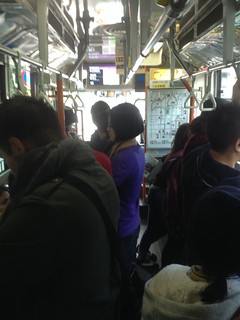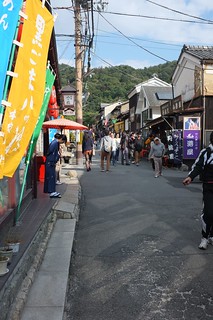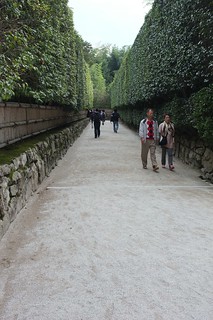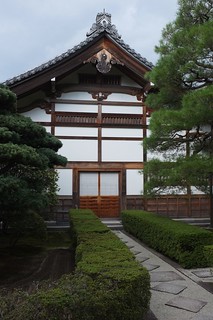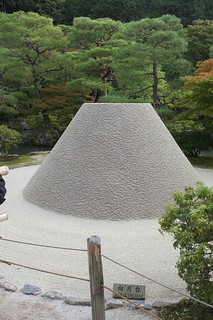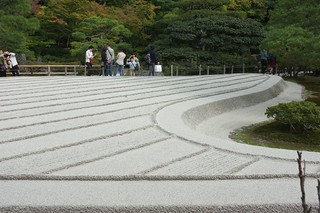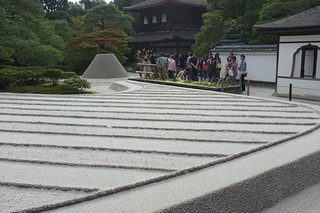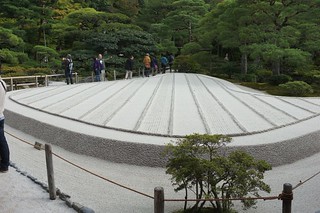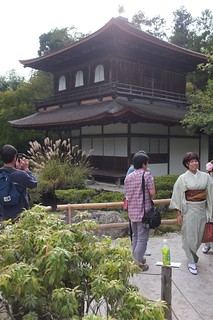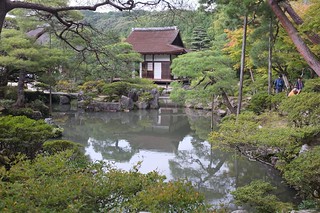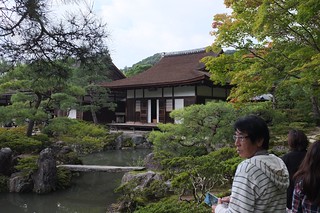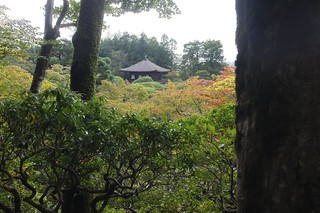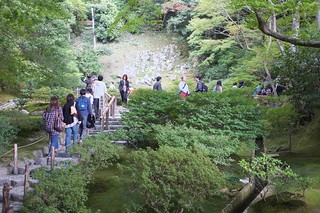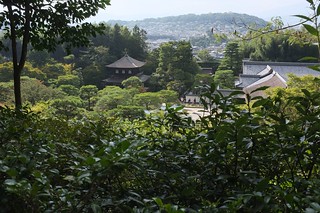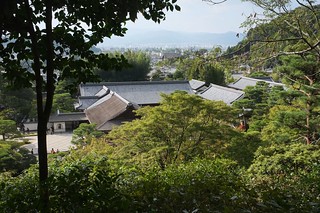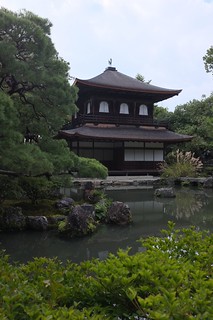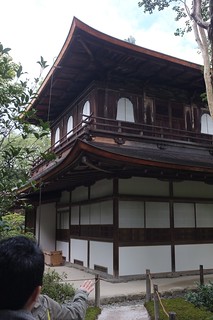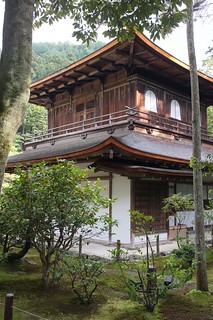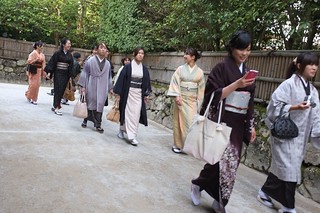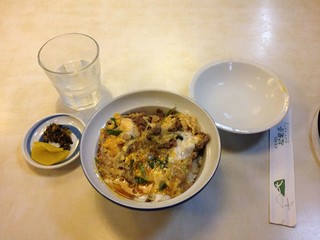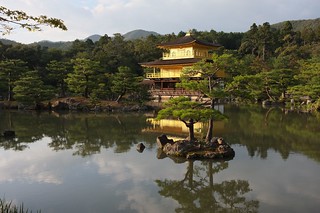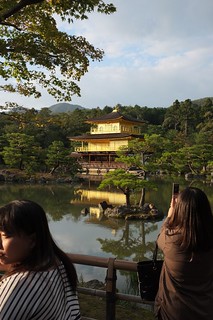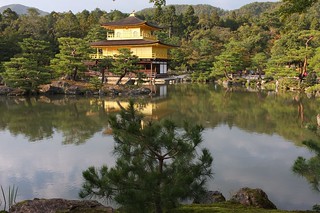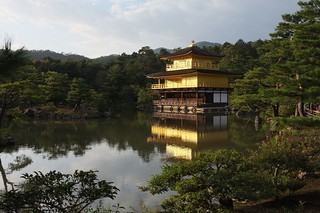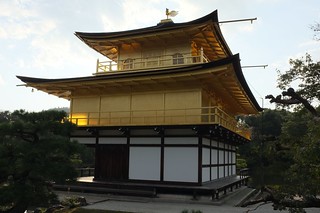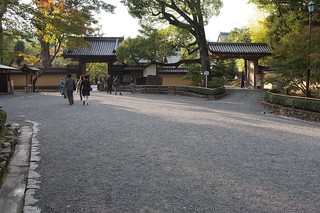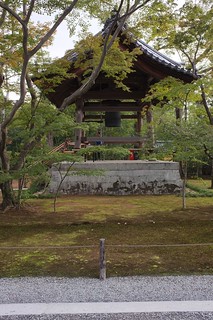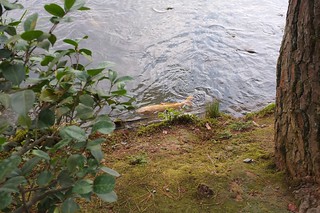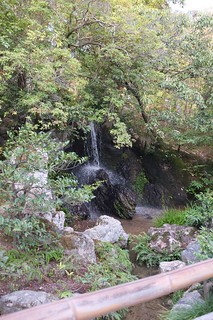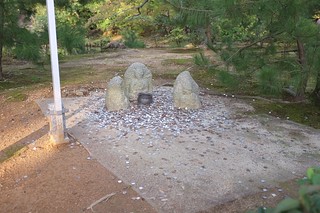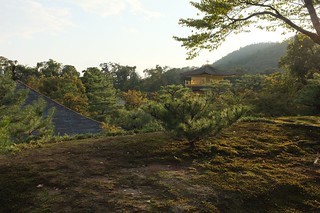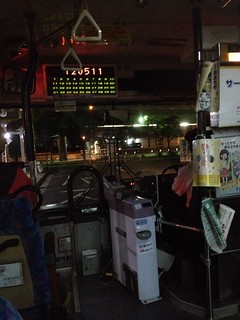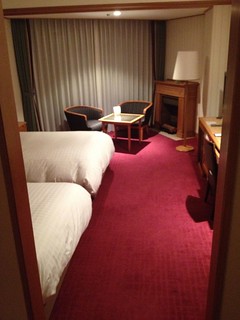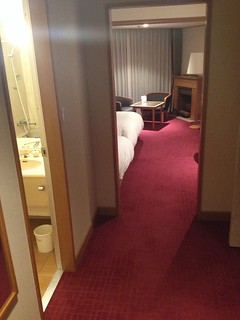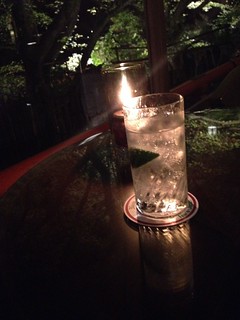Day 9: Kyoto
Lots to see and do in Kyoto. Kyoto was Japan’s capital (from 794 until 1868) before Tokyo. You can’t turn a corner without seeing a temple or shrine. Kyoto was also largely spared from air raids during World War II, so is one of the few major Japanese cities with significant pre-war construction. As a result of its place in history, its attractions, and the fact that it’s a major city (current population close to 1.5 million), Kyoto is a major tourist destination. According to Wikipedia, there are roughly 2,000 temples and shrines in Kyoto and it attracts over 30 million tourists annually.
Kyoto was definitely the busiest (in terms of crowds) city I’ve been in during my trip. It’s also the weekend (I arrived Saturday night and spent Sunday here), so I suspect that bumped up the volume of people at the tourist attractions.
Kyoto Station
Kyoto Station is worth taking some time to explore. It’s a huge complex, with attached department stores like many other stations, but it’s a very cool modern architecture building. So I made the trek from my hotel back to the station, deposited my luggage in a coin locker (and took copious notes about which coin locker bank it was in), and checked out the station.
There was a Halloween thing with costumes for kids to dress up and get a picture taken. When I took this picture, “The Time Warp” (with Japanese lyrics) was playing.
The central concourse of the station, and the ceiling overhead.
The building is 12 stories tall, which provides some nice views of Kyoto as you head up.
There’s a rooftop garden, a.k.a. the “Happy Terrace.”
My hotel rate didn’t include breakfast so I grabbed a quick bite at a bakery in the station recommended by my Japan By Rail book.
Kyoto is pretty spread out (with 3,000 temples and shrines they’re not all within easy walking distance!), so I got a bus day pass that let me ride the city busses for the day. The tourist information center in the station provided an English bus route map.
Kiyomizu Temple
First stop, Kiyomizu Temple.
On the bus:
Walking up the hill toward the temple from the bus stop. The street quickly becomes lined with shops as you get closer.
Around the temple:
The temple has an observation deck you walk up to that provides a nice view.
Some rocks get bibs.
More around the temple grounds.
Yasaka Shrine
A couple bus stops down the line is Yasaka Shrine, dating back to 656.
Ginkaku Temple
Back on the bus, heading for Ginkaku-ji, then making the walk to the temple grounds.
There’s an impressive dry sand garden.
And some other sights.
Lots of women were wearing kimonos for their weekend Kyoto sight-seeing.
After Ginkaku-ji I made a stop at a restaurant that I passed when walking back to the bus stop. Beef and eggs over rice. Yummy!
Kinkaku Temple
Back on the bus for a ride out to Kinkaku Temple, site of the Golden Pavilion. The building is literally covered in gold (last regilded in 1987). It’s really striking when you see it.
Elsewhere on the grounds….
To Nara
I was quite a ways away from the train station at this point, so I figured out which bus would take me back and hopped on board. It was a packed bus; standing-room only and at later stops people couldn’t get on board because people were already crammed in as much as they could be. Eventually we got back to Kyoto Station at around 5:40. I retrieved my luggage from the locker (I found it!) and took the JR Nara Line Rapid Service from Kyoto to Nara, which is about an hour train ride. Booked a couple train seat reservations at Nara Station, then it was time for another bus (today was bus day, after all) to my hotel.
The hotel I’m at, Hotel Nara, defines old-world charm. It opened in 1909 and has been host to world leaders, royal families, and entertainers. There’s a picture of Albert Einstein playing the piano in the bar when he was here. I booked a single room but got upgraded.
To finish the busy day, I popped down to the bar to enjoy a gin and tonic and live piano music (although it wasn’t Einstein playing the piano).
It’s a rough life, but someone’s gotta live it.
